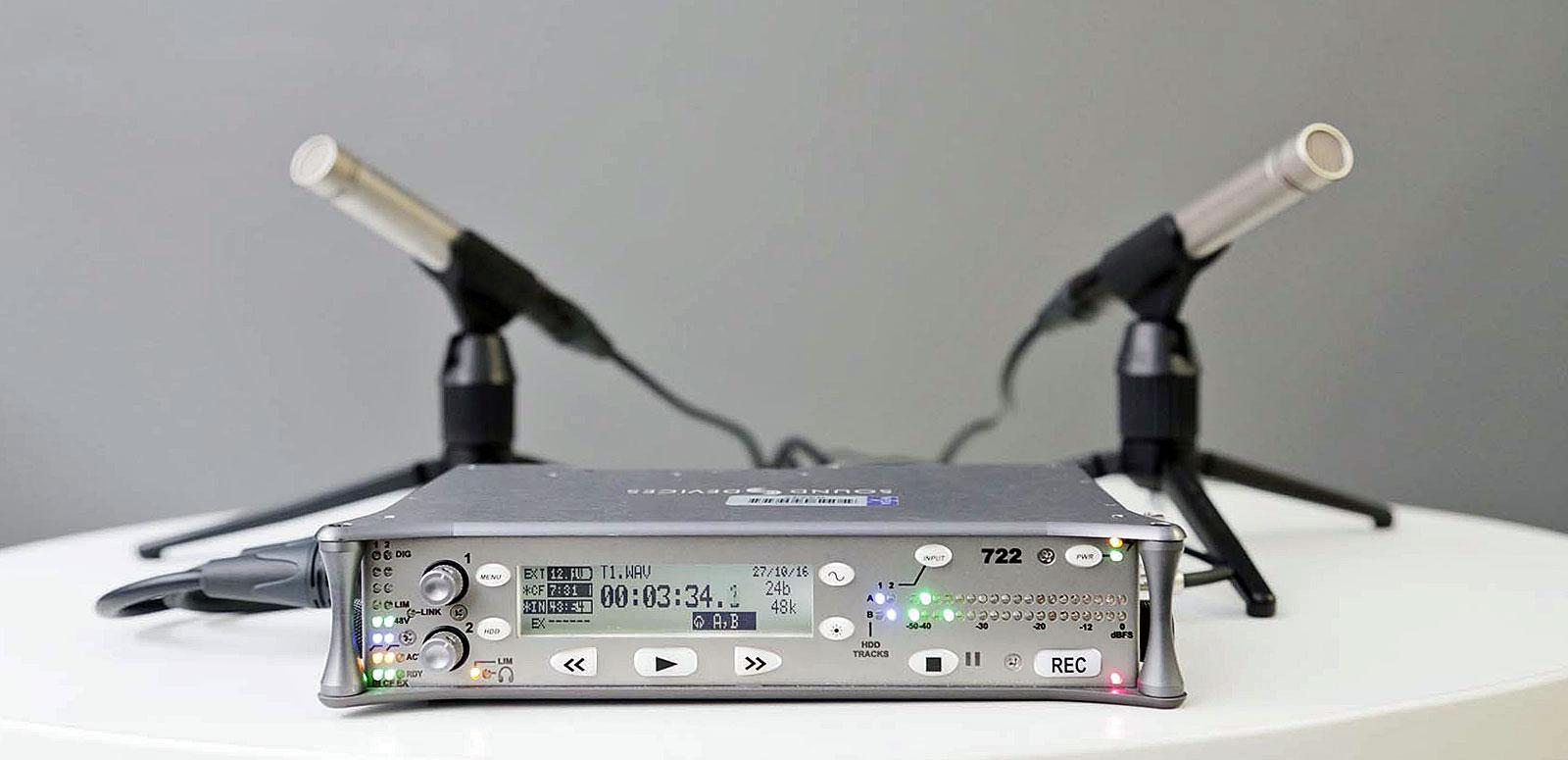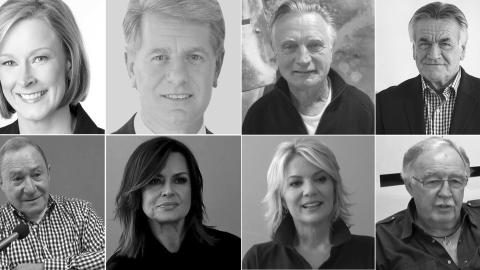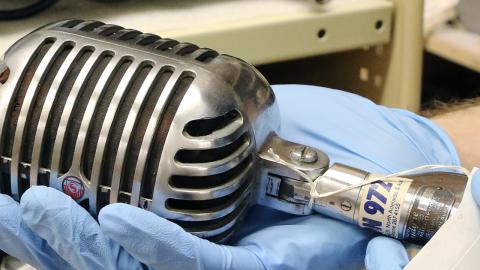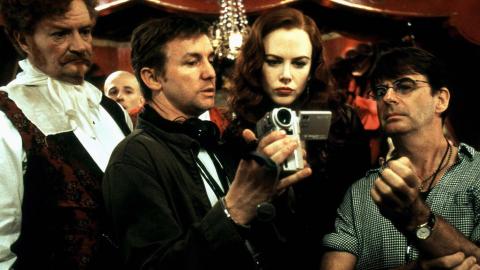

Express celebrity interviews
Famous faces at the NFSA: Part 2
Many well-known faces visit the NFSA offices in Canberra, Sydney and Melbourne to be interviewed for our Oral History program.
These are in-depth, career-spanning interviews that can range from a couple of hours, to a number of sessions over many days. The Oral History interviews are available to researchers, and a selection of recordings is also available online.
We also take the opportunity to conduct ‘express interviews’ and ask our celebrity visitors a few questions. These are some of the latest we’ve recorded.
Lisa Wilkinson
In her express interview, journalist and Today show host Lisa Wilkinson speaks of the pros and cons of journalism in the digital era:
We don’t see the long-form journalism as often as we used to … Journalism could almost fit into 140 characters these days; it’s all about getting the quick communication out there. So I think it’s crucial that we hold dear true journalism that is fact-checked, that has had time to be considered and is put out there with a real gathering of knowledge before it is published and put into the public domain. So I think more than ever we have to, not just hold it dear but celebrate it and nurture it and encourage more of it.
Lisa also discusses the crisis of violence against women, journalists she admires, and the importance of having female role models to inspire young women interested in a career in media:
When I was a little girl every news and current affairs program was fronted by a man, and most women were basically weather girls […] Beauty and the Beast and that afternoon program that Mickey de Stoop did must have had an influence on me. It was a wonderful thing; you cannot be what you cannot see, and I got to see that as a young girl.
Steve Liebmann
Journalist Steve Liebmann discusses how the news reports of the day become a historical chronicle of the times, and the work he did covering the 11 September 2001 attacks in the United States:
I think it’s very important to archive everybody’s [news] work, because it becomes a chronicle. In a sense it becomes part of the history of our work, how we present it, the stories, the news of the day. It’s a history of our nation.
Don Walker
Musician Don Walker (Cold Chisel) talks about the importance of saving audio tapes, and how he still keeps the handwritten notes where he first captured the ideas for many songs:
Audio tape is the ultimate, as we know it now, the ultimate way of preserving sound. It’s the opposite of what has been the accepted wisdom of digitising everything, but for musical sound, audio tape is the only thing that gives us infinite resolution.
Chris Haywood
Actor Chris Haywood talks about the films that he has worked on that deserve to be preserved for posterity, and how he still wears his boots from Quigley Down Under (Simon Wincer, Australia-US, 1990), in which he co-starred with Tom Selleck, Laura San Giacomo and Alan Rickman.
Libraries, archives are vital. The breadth of material held in them is vital, to confirm the realities of what’s taken place, and not relying on supposed histories that are researched by individuals from particular perspectives.
Read Part 1, featuring express interviews with John Jarratt, Sandra Sully, George Negus, Andrew Denton, Greig Pickhaver, Kim Mordaunt and Emile Sherman.
The National Film and Sound Archive of Australia acknowledges Australia’s Aboriginal and Torres Strait Islander peoples as the Traditional Custodians of the land on which we work and live and gives respect to their Elders both past and present.


